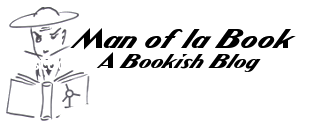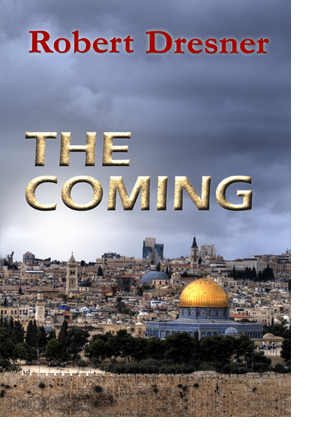What would you sacrifice in the name of faith? What would you choose when faced with impossible choices—the salvation of your soul, or the lives of millions?
I often write about choice and sacrifice, thrusting ordinary people into extraordinary circumstances and presenting them with difficult choices. I also wonder what I would sacrifice for another person: money, freedom, my health, even my own life.
I especially marvel at people who do give up their lives for others. I had friend, a soldier, who threw his body onto a grenade to save the lives of his comrades. I was in living India at the time—trying to find myself—when I heard this sad but heroic story and gained much-needed perspective on my own quest.
I went through most of my life thinking the greatest sacrifice a person can make is giving up their life in service to another. But times and values change. Now it seems that many people have a greater attachment to their faith then their lives; they would more quickly die for their God than their fellow man—regardless of the consequences.
Acts of terror, random shootings, myriad crimes that we could hardly imagine a few years ago are not only common place, but sensationalized and endlessly reiterated by an irresponsible media.
Two planes knocked down two buildings on 9/11 and nearly destroyed our sanity, let alone our democracy, and we were easily frightened into a dubious war against a worthless foe in Iraq. And then we were turned against each other in the process, looking for the enemy within, as the entire world careened into an alarming future:
A global surge in nationalism, a lousy economy, a severe depletion of energy resources, unabated climate change, nuclear proliferation, and a spike in technological growth that escapes our controls and our understanding; and we get a crisis brewing of Biblical proportions while we fester in myopia.
I do believe many people will die if nothing is done to inhibit this catastrophic momentum. I also believe that many lives can be saved if we find the courage to look for a solution.
How can this be accomplished?
Christ and Buddha were manifested to redress the imbalance of good and evil in the world; likewise the U.S. Constitution and the Emancipation Proclamation. I submit our current challenges may surpass even these defining moments in history and present us with an unimaginable opportunity for transformation.
Where lay this wisdom and insight?
In the darkness of our despair; in the depths of our fear; in the hearts of our worst enemies—where Christ went; where Buddha taught; in the atomic bombs we build that teach us about the power of the small; in the machines we make that poison our environment and muddle our minds, and teach us about the power of indifference.
I had a teacher in India many, many years ago who came to America one day, to my old neighborhood in the Bronx no less, and many of my old friends wanted to meet him. But they were junkies and ill-suited to engage such a refined soul, I thought: A homeopathic doctor and surgeon who taught with the use of Socratic dialogue.
I was still young and dumb, and embarrassed to introduce him to these friends. But the doctor insisted on meeting them all, more importantly the worst of them.
“Why the worst?” I asked.
“Because they have the greatest potential for transformation; because it takes a great deal of energy to cause so much pain,” he explained.
So maybe we should look a bit deeper into the wretched hearts and minds of these terrorists we abhor, and more carefully into the machines we make; and just maybe we can rediscover the means to our own salvation.
Which may arrive in a configuration that beguiles our imagination, or in a sacrifice that would boggle the faith of millions.
Imagine another war in the Middle East; imagine a nuclear weapon set to detonate in the heart of Israel, and Israel threatening to retaliate by killing every Muslim between Pakistan and Morocco.
Then imagine an impoverished old rabbi who had another idea. He was praying at the Western Wall in Jerusalem when a terrorist attack killed several people and injured many more. His clothes covered with blood and sinew, the old rabbi made his way through the confusion onto the Temple Mount and into the Dome of the Rock. Michael, his unwitting disciple, found him sitting on a bench outside of the holy old mosque, weeping:
“Why did you come here?” Michael asked, placing a hand on the old rabbi’s knee.
With great difficulty, the old rabbi craned his stiff neck, looked up to the sky and explained. “I come to speak to the Muslim Gott because I cannot speak to His people, and because my Gott does not answer my prayers,” he agonized. “And I am t’inking that someone must try some’ting or there will be not’ing left and no one to speak to. This craziness must stop. Someone must speak to this pain. All night in my room I pray to see the true path, but I cannot see the way. Then I go to the Holy Wall in the morning and I see a Muslim boy kill all these Jews, and himself, in the name of his Gott. So I come to talk to Him, to Allah, in His own house. But the Muslim Gott also does not speak to me. Then I see the Rock of Abraham. And I t’ink about Abraham, and I t’ink about Ishmael. You know Ishmael?”
Michael nodded. “The first son of Abraham and the slave girl, Hagar.”
The old rabbi raised his cane and stomped it on the ground in anger and disgust. “Ishmael is the firstborn to our lack of fait’! He is also the father to the Muslim peoples who are so crazy with the hate and the killings of the Jews. And now I t’ink Allah is the spirit of Ishmael who comes back to punish us for our lack of fait’.”
Michael was stunned—it was a very strange and novel idea—but he still couldn’t understand why the old rabbi was so upset.
The old rabbi looked over Michael’s shoulder at the mosque and shed another tear as he explained. “Because I spend my life worshiping the pride of Abraham when I should be loving his pain. This too is Gott.”
(Excerpt: The Coming, 2009)
How far would you go to save the lives of millions?
###
Robert Dresner has written six novels. Each evoke the complexity and subtle ironies of the human condition, combining cutting-edge philosophy with gritty reality: from a junkie jazz musician struggling to survive another day, to an obscure old rabbi who finds God in the heart of his worst enemy; to the first manned missions to Mars, wherein great sacrifices and discoveries pose even greater mysteries to our becoming. He spent many years in India learning about life through a rugged process of osmosis, alternately studying yoga and meditation, and looking for adventure. By his own admission, he loved being young and dumb—meeting the world on its own terms and surviving by his wits. Robert lives in Boulder, Colorado. You can find him online at his website (http://www. http://robertdresner.com), on Facebook (https://www.facebook.com/robertdresnervirgapress), and Twitter (https://twitter.com/RobertDresner).
THE COMING (Virga Press, 2009) is available in paperback and on Kindle, and at independent bookstores.


2 Comments
I was reading this post without realizing it was an excerpt from a book and was thinking, “I didn’t know he lived in India before”, etc. lol Sounds intriguing, but probably not my cup of tea!
LOL, I was also “fooled” when I first read the post.